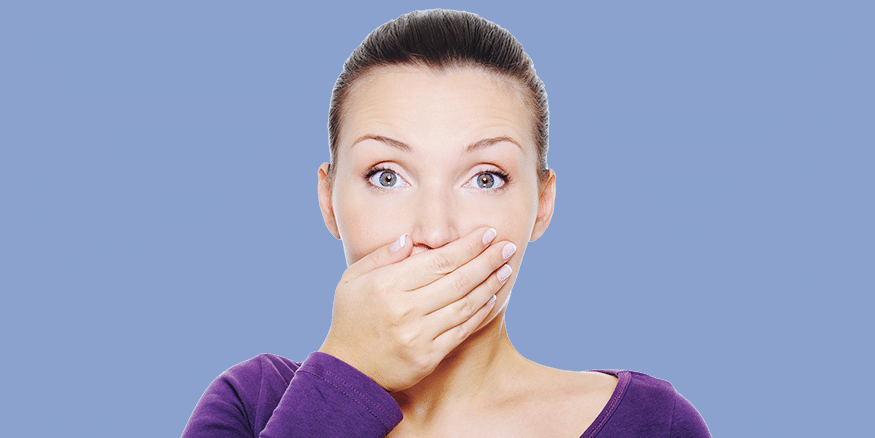
Hiccups
The hiccup, hiccough, hicka, geehouk, hoquet, hipo, hikke, whatever you call it, nearly everyone has had this annoying experience. You may be wondering what causes them and, more importantly, how to stop them.
What are hiccups?
A hiccup is an often-repeated, breathing-related movement that does not serve any respiratory function. It involves a sudden, involuntary contraction of the diaphragm resulting in an abrupt intake of breath. The glottis (where the vocal chords are located) immediately closes in response, to prevent hyperventilation. This sudden closure halts the breath, causing it to strike the closed glottis, creating the familiar hic sound. People have been using the onomatopoeic word hiccup for approximately 500 years.
What activates hiccups?
There is no universal cause of hiccups, as they vary from person-to-person and incident-to-incident. It seems that in most cases, there is some type of irritation to nerves along the air pathway. Overeating, temperature change, excitement, consumption of alcohol, and excessive bloating seem to be the most common irritating triggers. Some other causes, particularly in chronic hiccupping, include trauma, infection, certain drugs, and problems with the central nervous system. Irritating stimuli such as spicy food, as well as digestive disorders such as gastritis, heartburn, peptic ulcers, and pancreatitis may occasionally start onset of hiccups.
There is evidence that hiccups could be a non-typical symptom of gastroesophageal reflux disease (GERD). In a 2009 article published in The European Journal of General Medicine,1 physicians explained that two male patients who were suffering from chronic hiccupping made complete recoveries when using proton pump inhibitor (PPI) therapy.2 One of the men had been suffering from intermittent hiccupping for 15 years before beginning PPI treatment.
Why do we hiccup?
We know how hiccups occur and a number of potential triggers, but does this pesky condition occur for a good reason? Hiccupping is a common occurrence in fetuses, which leads to the theory that hiccups may be the way a fetus practices using its respiratory system before entering the world, where breathing becomes incredibly important. Once we’re born; however, hiccups don’t seem to serve any useful purpose. Another theory suggests that hiccups may be a remnant of a primitive reflex that we no longer need or use today. Speculations aside, it seems that the definitive purpose of hiccups remains a mystery.
How do we stop them?
When going through a bout of hiccups, the cure, the relief, the end of them is something quite sought after! As soon as a few hiccups burst out, people within earshot begin offering suggestions to get rid of them. Most of us have a favourite remedy we rely on, which eventually seems to work, whether or not our actions actually are what make them cease. Endless lists of cures flood the internet and libraries… from holding your breath, to sucking a lemon wedge soaked in bitters, the options are endless. However, medically speaking, what really works?
We can generalize the majority of effective cures into a few categories. There are those that increase the carbon dioxide level in the blood; which include holding your breath, breathing into a paper bag, chugging water (or any other beverage), and gargling. Methods that counter-stimulate the contractions of the diaphragm are also quite common; including lifting the knees into the chest, leaning forward, and applying ice to the area just under the rib cage. Swallowing a spoonful of sugar may also be helpful because it seems to modify nerve impulses, causing the diaphragm to stop the spasms.
If all else fails, maybe a folktale passed down in your family will be your cure! We hope something works for you, so you don’t end up like poor Charles Osborne, (1893-1991) who is the Guinness World Record holder of the title “The Man with the Longest Attack of Hiccups.” His hiccups began on a routine day in 1922, while he was working on his farm. They continued for 68 years, until mysteriously stopping on June 5, 1990. Osborne hiccupped an estimated 430 million times in those 68 years, yet still managed to live a full life, marrying twice and having eight children! He died a year later due to complications from ulcers.
Folklore Hiccup Cures
Cures for the hiccups go back many years. Physicians and philosophers, Hippocrates, Celsus, and Galen, were firm believers that a good sneeze could end a bout of hiccups. However, scientist and philosopher, Plato, stood by his theory that a sudden thump on the back worked to scare away the hiccups. Some other classic cures include:
- smelling garlic
- sneezing
- yanking your tongue
- lifting your uvula with a spoon
- tickling the roof of your mouth, where the soft and hard palates meet, with a cotton swab
- chewing gum
- taking a shot of whiskey
- drinking warm milk through a straw
- chewing licorice root
- chewing and swallowing dry bread
- taking a swig of vinegar
- sucking on ice
- having someone give you a good scare















